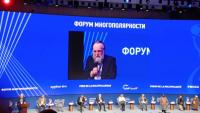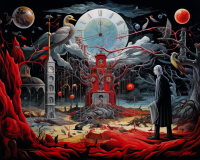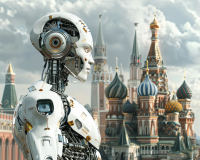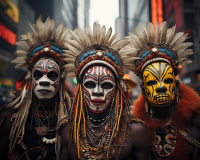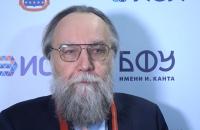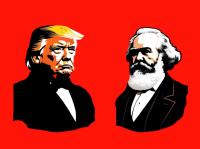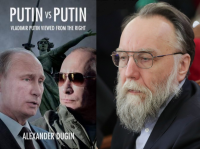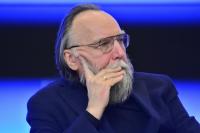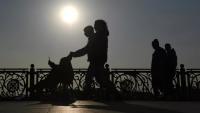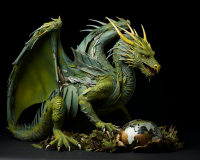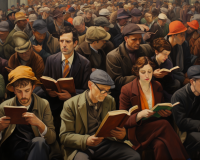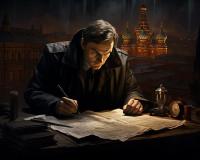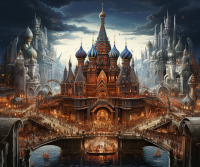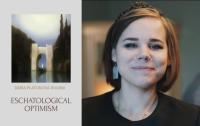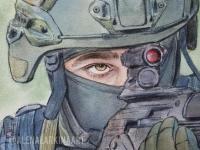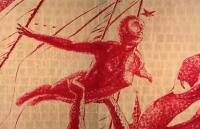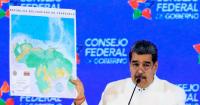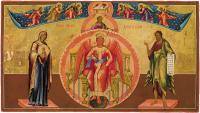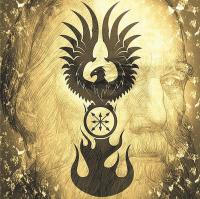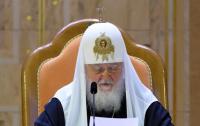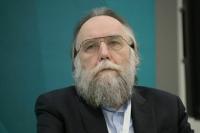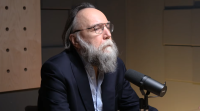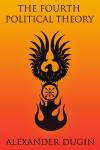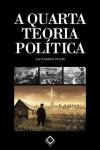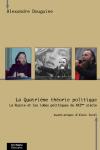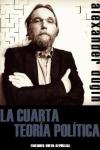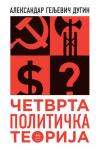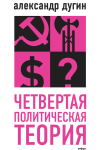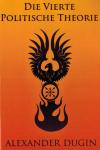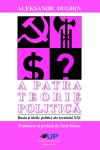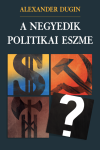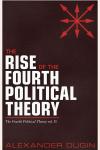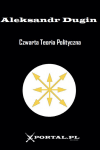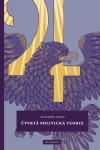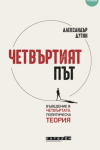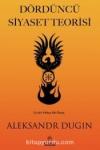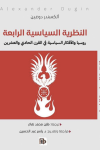One for all — to which country will our heroes return?
Everyone understands that on the fronts of the Special Military Operation (SMO), a new elite of Russia is being forged. This is the estate of bravery (Hegel), which is to reboot the state. It is clear that the war heroes at the front are already divided into future strata: pure warriors, commanders, inventors, creators, strategists, economists. Among them is also the forming estate of ideologists. A bright symbol of theirs was Vladlen Tatarsky; many today rally around the front-line philosopher Korobov-Latyncev.
A New Russian Worldview
Contemporary social science in Russia needs to catch up in understanding the changes occurring in the country and in forming a sovereign worldview, and it needs to be accelerated, philosopher Alexander Dugin told journalists at the 5th Congress of the Russian Society of Political Scientists in Svetlogorsk (Kaliningrad region).
Exclusive interview with Alexander Dugin By Guancha.cn
Interview with Alexander Dugin, Russia's famous political thinker: Don't pay attention to what the West says about the BRICS mechanism
Why is Tucker Carlson’s interview considered pivotal for both the West and Russia?
Let us start with the simpler part: Russia. Here, Tucker Carlson has become a focal point for two polar opposites within Russian society: ideological patriots and elite Westernisers who nonetheless remain loyal to Putin and the Special Military Operation. For patriots, Tucker Carlson is simply ‘one of us’. He is a traditionalist, a right-wing conservative, and a staunch opponent of liberalism. This is what twenty-first-century emissaries to the Russian tsar look like.
Q&A w/ Alexander Dugin | Multipolarity and the Decline of the West
Discussion with Professor Alexander Dugin, on the subject of Multipolarity and the Decline of the West.
Forward to the New Middle Ages!
In Russia, the year 2024 has been proclaimed the Year of the Family. Clearly, in this area, things are quite dire for us. The alarming rates of divorce, abortion, and declining birth rates represent a national catastrophe. If we take the Year of the Family seriously, relying on the classics (but not the liberal or communist ones, as they are likely to advise something that will only hasten the disintegration of the family), we should simultaneously return to our roots and take a step forward.
Dugin: Colonialism was present at all stages of Western political thought
Interview with Russian thinker Alexander Dugin on the relationship between Western thought and colonialism and Eurocentric understandings.
Hira Channel: Special Interview with Alexander Dugin
Interviewer: Hadi Al Lawati - from Oman
The Philosophers of Archeomodernity. Part.5
Chaadaev’s philosophical, spiritual emigration was developed and embodied in the poetry and personal fate of an even more extreme Westernizer, the ideal archetype for this movement, Vladimir Sergeevich Pecherin (1807–1885). Pecherin was a Westernizer from his earliest youth. Here is how he wrote about this himself in correspondence with Fedor Vasilyevich Chizhov:
The Philosophers of Archeomodernity. Part.4
Another Russian thinker belonging to the late Slavophiles was Nikolai Yakovlevich Danilevsky (1822-1885). Danilevsky came from a line of high-ranking aristocrats. His father was a general. He was not a professional philosopher, focusing primarily on natural science, in particular, botany. In his fundamental work Russia and Europe,17 Danilevsky approaches the fundamental position of the plurality of civilizations or, as he puts it, “cultural-historical types.”
The Philosophers of Archeomodernity. Part.3
The starting point in their theories should be recognized precisely as the thought of Sophia - sophiology. You could even say that they considered Orthodoxy through sophiology, and not vice versa. This is fundamental; it allows you to clearly identify in their motivation the archaic principle itself, breaking through to the surface from under the tightening and painful fetters of focus B, imitating European rationalism.
Aleksandr Dugin: Is Putin's Russia Winning the Ukraine war?
As we find ourselves approaching the end of 2023, how would you define the year 2023? Today we are happy to have Professor Aleksandr Dugin, he will reveal to us the Winner of 2023 in his mind.
The Russian People and State in the Future: A Hegelian Perspective
In Hegel’s political philosophy, there is a fundamentally important transition concerning the establishment of the state (der Staat). In his notes on a course about Hegel, Heidegger focuses on the terminology of Staat — stato — status. The Latin root is stare — to stand, to establish, to set up. In the Russian language, the state (gosudarstvo) comes from the word государь (gosudar), meaning lord or master.
For a Metaphysics of 4TP (3): the inner climate of the search for Being in Dasein
The themes related to the movements of the inner search for Being on the part of the Being-us, i.e. of the Dasein, which has realized in itself the consciousness of the reality of Being and seeks to attain it, to experience it in itself or to welcome it through its inner openness, to transfer to it, to identify with it, or otherwise, these are multiple themes that for the most part are not clearly identifiable and often, like the air one breathes but cannot see, fail to be crystallized in a critical reflection, as they lack the reality of being an experienced induction before becoming a reflexive deduction.
ALEXANDER DUGIN — EUROSIBERIA #1
Constantin von Hoffmeister talks with Alexander Dugin about the current state of Eurasianism and multipolarity, Guillaume Faye’s concept of Eurosiberia, Western racism amidst claims of universalism, the immortality of the soul as the foundation of the Fourth Political Theory, and other topics.
All-Russian Ideology Emerges at the Front
Certainly, there are those who voluntarily and consciously went to war, already possessing an ideology. There are the convinced rightists (Orthodox, monarchists, imperialists). There are the leftists (Stalinists, anti-globalists). There are left-rightists — National Bolsheviks. By the way, Prigozhin articulated, in many respects, exactly the left-right discourse — justice and strength.
The Philosophers of Archeomodernity. Part.1
The appearance in the first quarter of the 19th century of Russian conservatives (the so-called “Russian party”: Shishkov, Rastopchin, Glinka, etc.) and Slavophiles especially can be represented in this diagram as an achievement of the “haughty” Eurocentric ellipse expanding its reach to the points of Focus A (Figure 2) and the first intelligible and conscious intuitions of the Russian intellectual and political elite regarding the fact that Russia is a distinctive and original culture and civilization, not just a “European country.”
Five Fronts against Unipolar Globalism
On the eve of 2024, it is worth taking a look at the overall picture of the world and the main geopolitical trends. Overall, we are in a moment of transition from unipolarity to multipolarity. This year, multipolarity received additional structuring in BRICS-10 (Argentina, having just joined this organisation, was hastily removed from there by another globalist clown — Javier Milei).
Russian Ecclesiology: the stages of Russian Orthodox Historicism
The adoption of Orthodoxy by the Grand Duke of Kiev Vladimir was the starting point of Christian historicity, which covers almost the entire history of Russia - with the exception of the Soviet period and the era of liberal reforms. This historicity itself was a complex and multidimensional process, which it would be wrong to describe as a gradual and unidirectional penetration of Byzantine Orthodox culture into the popular environment, in parallel with the displacement of pre-Christian ('pagan') ideas. Rather, we are talking about different phases of the temporal synthesis between Byzantinism and East Slavic demetriac civilisation, phases determined by the different correlation of the main structures - Byzantine ideology at the elite level and the reception of Christianity by the people as such.
For a Metaphysics of 4TP: contributions to the Interiority of the Radical Subject
It is not up to us to choose the actual time and manner in which a Radical Subject, from a human aspiration of an existential order and consequent intellectual adherence to the values and truths preached by the Fourth Political Theory, can transform and transfigure itself into a concrete metaphysical and spiritual human reality that in its essence is res of a mystical-eschatological order.
New Interview: Russian Philosopher Aleksandr Dugin | حوارمع مستشارالرئيس الروسي بوتين الفيلسوف دوقين

